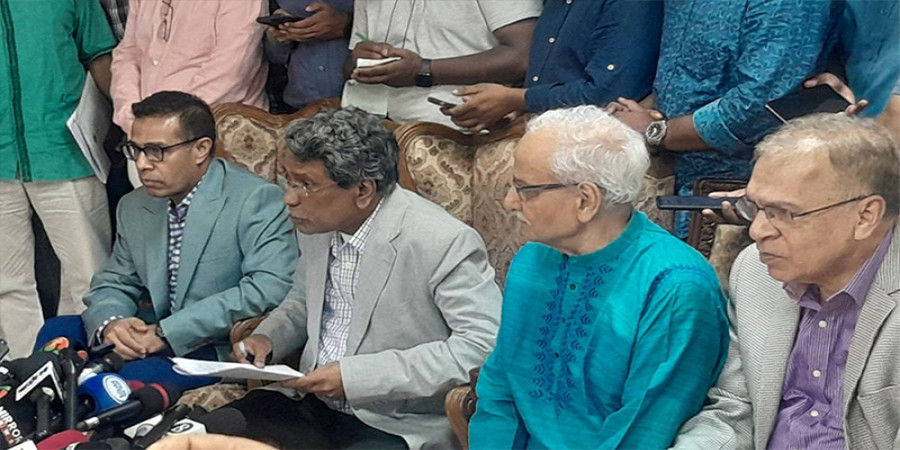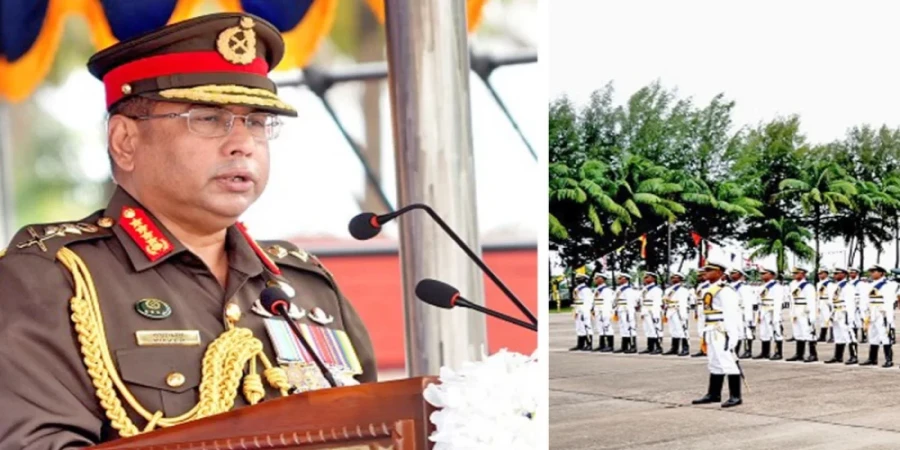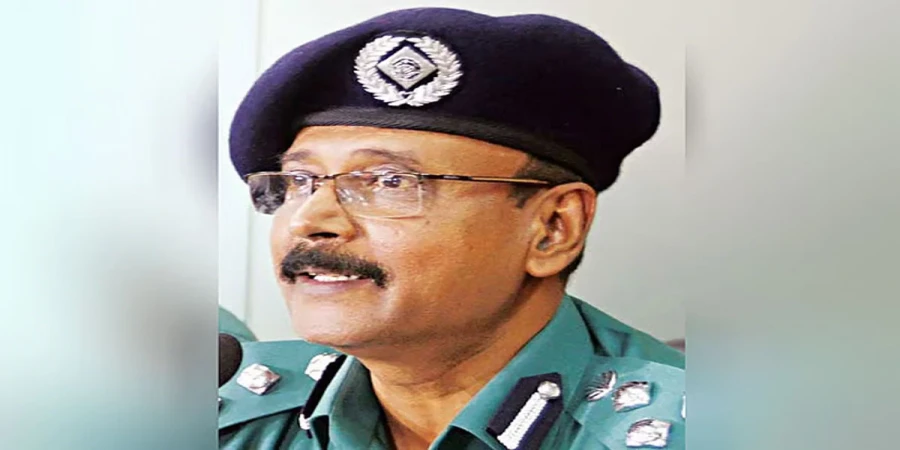
ছবি: Photo: Collected
Following extensive dialogue on constitutional reforms, most political parties support capping a Prime Minister’s term to 10 years, though BNP, NDM, and BLDP request additional time for review, according to National Consensus Commission Vice Chair Prof. Ali Riaz.
The majority of Bangladesh’s political parties have reached a preliminary agreement on a proposed term limit for the office of the Prime Minister, suggesting that a single individual should not serve more than ten years in the role. This proposal emerged from the second round of discussions hosted by the National Consensus Commission (NCC), held on Sunday, June 22, at the Foreign Service Academy in the capital.
National Consensus Commission Vice Chair Professor Ali Riaz briefed the media following the session, confirming that most parties endorsed the proposal. However, three parties — the Bangladesh Nationalist Party (BNP), the National Democratic Movement (NDM), and the Bangladesh Liberal Democratic Party (BLDP) — have yet to give their full support. These parties have requested additional time to reconsider their positions and align them with broader structural considerations, such as the formation of an upper house and adjustments to the overall framework of the NCC.
During the press briefing, Professor Riaz stated that the day’s discussion centered around two core constitutional topics: the tenure of the Prime Minister and the foundational principles of the state enshrined in the constitution. On the first issue, he said, “After detailed deliberations, we reached a specific recommendation — that a person may serve as Prime Minister for no more than 10 years in their lifetime. However, full consensus has not yet been achieved.”
While a majority of political parties present were in agreement with this recommendation, Riaz emphasized that the dissenting groups had not outright rejected the idea but sought more time for internal policy review. He said, “BNP, NDM, and BLDP expressed their intention to revisit the proposal in their respective policymaking forums. They view the term limit proposal in connection with broader structural reforms, including the proposed upper chamber of parliament. As such, the issue will be reintroduced in the upcoming sessions.”
The proposal for a 10-year term limit draws inspiration from global democratic practices, where limits on executive power are viewed as essential for healthy political transitions and the prevention of autocratic rule. Supporters argue that setting a cap on prime ministerial tenure would enhance democratic accountability and promote leadership renewal within political parties.
Professor Riaz remained optimistic about the possibility of full consensus in future sessions. “Except for three parties, all others agreed on this proposal,” he said. “We are hopeful that through continued dialogue, we will eventually arrive at a consensus.”
The second key topic discussed in the session related to the fundamental principles outlined in Bangladesh’s constitution. According to Professor Riaz, a proposal from the Constitutional Reform Commission was presented, suggesting a revised framework for reaffirming and expanding the state’s core principles. The proposal aims to emphasize equality, human dignity, social justice, and democratic governance as fundamental values.
While parties expressed varied perspectives on the constitutional principles, the NCC plans to draft a revised proposal reflecting the collective input. This revised version will consider party-specific feedback while ensuring alignment with the democratic aspirations of the country.
In light of the complex issues under discussion, several political parties requested a temporary pause in proceedings to allow for more in-depth review at their organizational levels. The NCC has granted a two-day suspension of talks, hoping it will facilitate further clarity and encourage consensus on the unresolved points.
Ali Riaz concluded the briefing by expressing confidence that these deliberative intervals would help close the gaps in opinion and lead to meaningful reforms. “The parties have requested time for internal reflection and policy-level discussions,” he said. “We remain confident that this process will help resolve the remaining differences and move us closer to a unified set of recommendations.”
The National Consensus Commission continues to serve as a platform for constructive dialogue among political entities on matters crucial to the nation’s democratic framework. The ongoing discussions are widely seen as a rare opportunity to forge cross-party understanding and initiate long-awaited constitutional and political reforms in Bangladesh.
repoter





